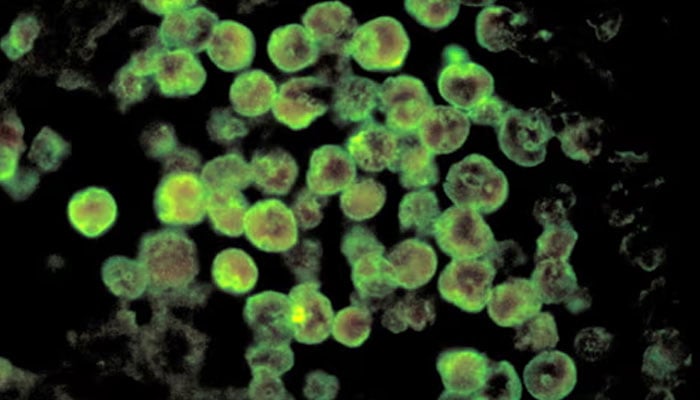Karachi reports fourth Naegleria death of 2025
17-year-old patient, resident of North Karachi, tested positive on June 27
June 28, 2025

KARACHI: Another patient has died of a fatal brain infection caused by Naegleria fowleri in Karachi, raising the 2025 death toll from the brain-eating amoeba to four this year, the Sindh Health Department confirmed on Saturday.
The 17-year-old patient, a resident of North Karachi, tested positive on June 27 and died today, said a spokesperson of the provincial health department.
Pakistan reported its first fatality from Naegleria in March as a 36-year-old woman from Gulshan-e-Iqbal succumbed to the brain-eating amoeba.
Investigations revealed that the deceased had not participated in any water-related recreational activities. Her only known exposure to water was performing ablution at home.
It is pertinent to mention here that Pakistan reported five deaths from Naegleria in 2024, with four cases in Karachi and one in Hyderabad.
What is Naegleria and what can we do?
Doctors and health experts say Naegleria usually enters the brain and attacks the nervous system when infected water is ingested through the nasal cavity while bathing, swimming or performing ablution.
The deadly amoeba survives on bacteria in warm waters and can only be decimated through proper chlorination or boiling of water.
Health experts have reiterated the importance of adequate chlorination in water sources to prevent Naegleria fowleri infections.
The amoeba, which thrives in warm, untreated water, can enter the body through the nose and cause fatal brain infections.
Health experts advise people to get their underground and overhead water tanks cleaned before summer starts every year and use chlorine tablets to routinely purify the water.











